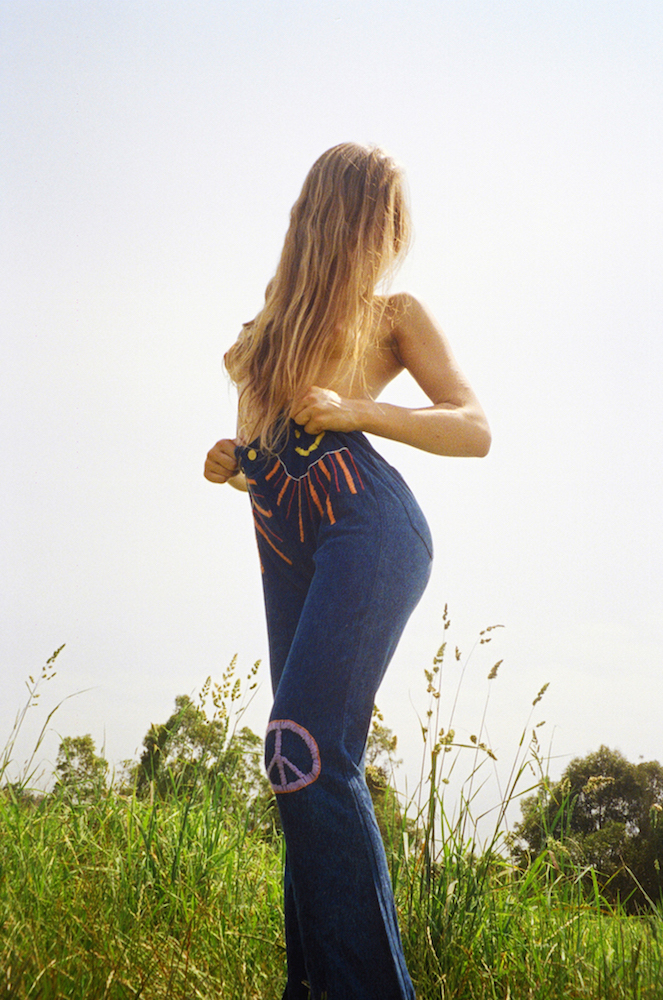Since coming out publicly as a sex worker in February 2015, Tilly Lawless has remained a positive, level-headed advocate for the community, intelligently dissolving a lot of the confusion and misconception surrounding her work.
Two months after revealing her occupation, Tilly posted a shot of herself on Instagram, in response to a misguided story about prostitution on Australian women’s website Mamamia, and included the hashtag #facesofprostitution. This began a ripple effect throughout the industry with sex workers around the world joining the movement with the intention of breaking down long held, untrue stereotypes of their line of work.
Now that the dust has settled, we sat down with Tilly to discuss her year and her thoughts on the industry.
You had a very busy year. Do you think having a well-known Instagram, prior to ‘coming out’ as a sex worker, helped people understand your profession better?
Having a following on Instagram is something I am incredibly grateful for; I am well aware that I am a privileged minority. I’m able to be out about my job because I work in New South Wales, Australia, a state in which it is decriminalized, and because I am a white woman, who won’t have her actions held up as an example of her race. So to have a place where I can discuss issues within the industry that the average person isn’t even aware of is amazing. I definitely think that because I presented so much of myself online before I went public about my job, and because I have my real face and name rather than a work persona, it has allowed people to see that I am a human first and foremost and beyond my work.

The fact I suck and fuck for a living is just one aspect of me. Sex workers have so often been reduced to unnamed prostitutes in literature, easy jokes for Tina Fey, shadowed figures in the backdrop of a film, that it is radical to be able to see them more fully fleshed out. I am not perfect, and while I fulfill some stereotypes, I subvert others; as do all people in their beautiful complexity. I spend far more money on books than clothes. I am queer and political and desperately trying to retain my awareness in a swamp of technology. Seeing a sex worker in all her failings, not just finery and glory, is vital.

Has the internet had an impact on sex worker activism and visibility?
The internet has been vital in allowing many people on the fringes of society to present their unadulterated reality in the way they want to present it, straight from the source. I think 20 years ago you would’ve seen a lot more sex workers justifying their existence by trying to prove they are respectable. “I pay tax, I don’t do drugs, I’m in a monogamous relationship outside work” are all things sex workers say to show they are just like other members of society. The thing is though claims such as those come at the expense of sex workers who aren’t conventional. We are deserving of rights and respect because we are human, not because we are normal. Now the internet has opened up more nuanced discussions around sex work.

It is a double-edged sword though; one thing I am wary of is the rise of what I would call “sex worker chic.” In the 90s, one of the turning points for the visibility of lesbians was the editorial of K D Lang and Cindy Crawford, which glamorized lesbianism in a way it hadn’t been before. This was momentous in some ways, but also terrible in others, because it didn’t actually make lesbians more accepted or taken more seriously, it just saw them used as an edgy tool in fashion. I see the same thing happening with sex work now. People are so ready to consume stripper and sex work culture – think Magic Mike XXL, think the main characters of both Moulin Rouge and Breakfast at Tiffany’s, think the popularity of stripper heels – but no one actually gives a fuck about our rights. We are good enough for consumption, but not for respect. That’s why I make such an effort to actually talk about the issues facing sex workers, rather than just celebrating the aesthetic and lifestyle around my work – the internet has made it so easy for people to access more controversial/appealing parts of our lives without thinking any more deeply about it.

Which female creatives working today are making the most positive impact on the awareness about decriminalization?
Janet Mock, Molly Crabapple, Darkmatter poets (who are non binary) – these are all people I see using their following to talk about sex worker rights, and it warms my heart. I think people generally are pretty unaware of the hardships sex workers face; that in countries where it is illegal or the Nordic model is in place, dependent children, partners, landlords, can be charged with pimping for “living off the earnings of a sex worker,” which means it is virtually impossible for sex workers to get a rental property or spend their money in the way they wish. The fact that trans women of color are especially targeted in America, with even the carrying of condoms being used as evidence of sex work, which then forces some sex workers to work without them.

Any policy that isn’t decriminalization exposes sex workers to the inadequacy, brutality, and corruption of police. Even the little things, such as it being illegal for me to donate blood, and that my entry into America may be barred because “prostitution” falls under their strict vice laws. So to see these creatives talking about sex worker rights – in a time where more salacious dialogues around sex work such as “how much do you earn?” and “what’s the weirdest thing you’ve ever done?” still sell well – knowing that it is not trendy to talk about these things, is amazing. Also to see queer figures talking about sex work too, when historically sex work has been one of the few avenues queer people could turn to to survive, due to being discriminated against in other industries, is great. There has been a push by the queer community lately to homogenize and become more like the straight community, to leave the more radical and “undesirable” elements behind, which just makes the already-marginalized even more marginalized. Historian Yasmin Nair put it perfectly when she said “sex work is as integral to queer history as to feminism. Forgetting that has devastated feminism, and will do the same for queers.”
Credits
Text Ruby Giles
Photography Chloe NourStyling Kurt Johnson
